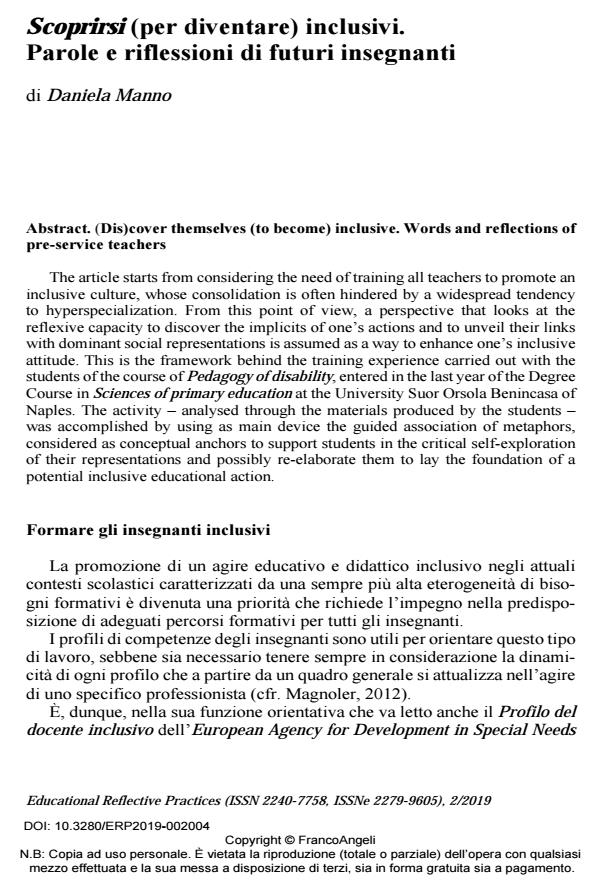Scoprirsi (per diventare) inclusivi. Parole e riflessioni di futuri insegnanti
Titolo Rivista EDUCATIONAL REFLECTIVE PRACTICES
Autori/Curatori Daniela Manno
Anno di pubblicazione 2020 Fascicolo 2019/2
Lingua Italiano Numero pagine 19 P. 57-75 Dimensione file 413 KB
DOI 10.3280/ERP2019-002004
Il DOI è il codice a barre della proprietà intellettuale: per saperne di più
clicca qui
Qui sotto puoi vedere in anteprima la prima pagina di questo articolo.
Se questo articolo ti interessa, lo puoi acquistare (e scaricare in formato pdf) seguendo le facili indicazioni per acquistare il download credit. Acquista Download Credits per scaricare questo Articolo in formato PDF

FrancoAngeli è membro della Publishers International Linking Association, Inc (PILA)associazione indipendente e non profit per facilitare (attraverso i servizi tecnologici implementati da CrossRef.org) l’accesso degli studiosi ai contenuti digitali nelle pubblicazioni professionali e scientifiche
The article starts from considering the need of training all teachers to promote an inclusive culture, whose consolidation is often hindered by a widespread tendency to hyperspecialization. From this point of view, a perspective that looks at the reflexive capacity to discover the implicits of one’s actions and to unveil their links with dominant social representations is assumed as a way to enhance one’s inclusive attitude. This is the framework behind the training experience carried out with the students of the course of Pedagogy of disability, entered in the last year of the Degree Course in Sciences of primary education at the University Suor Orsola Benincasa of Naples. The activity - analysed through the materials produced by the students - was accomplished by using as main device the guided association of metaphors, considered as conceptual anchors to support students in the critical self-exploration of their representations and possibly re-elaborate them to lay the foundation of a potential inclusive educational action.
Daniela Manno, Scoprirsi (per diventare) inclusivi. Parole e riflessioni di futuri insegnanti in "EDUCATIONAL REFLECTIVE PRACTICES" 2/2019, pp 57-75, DOI: 10.3280/ERP2019-002004